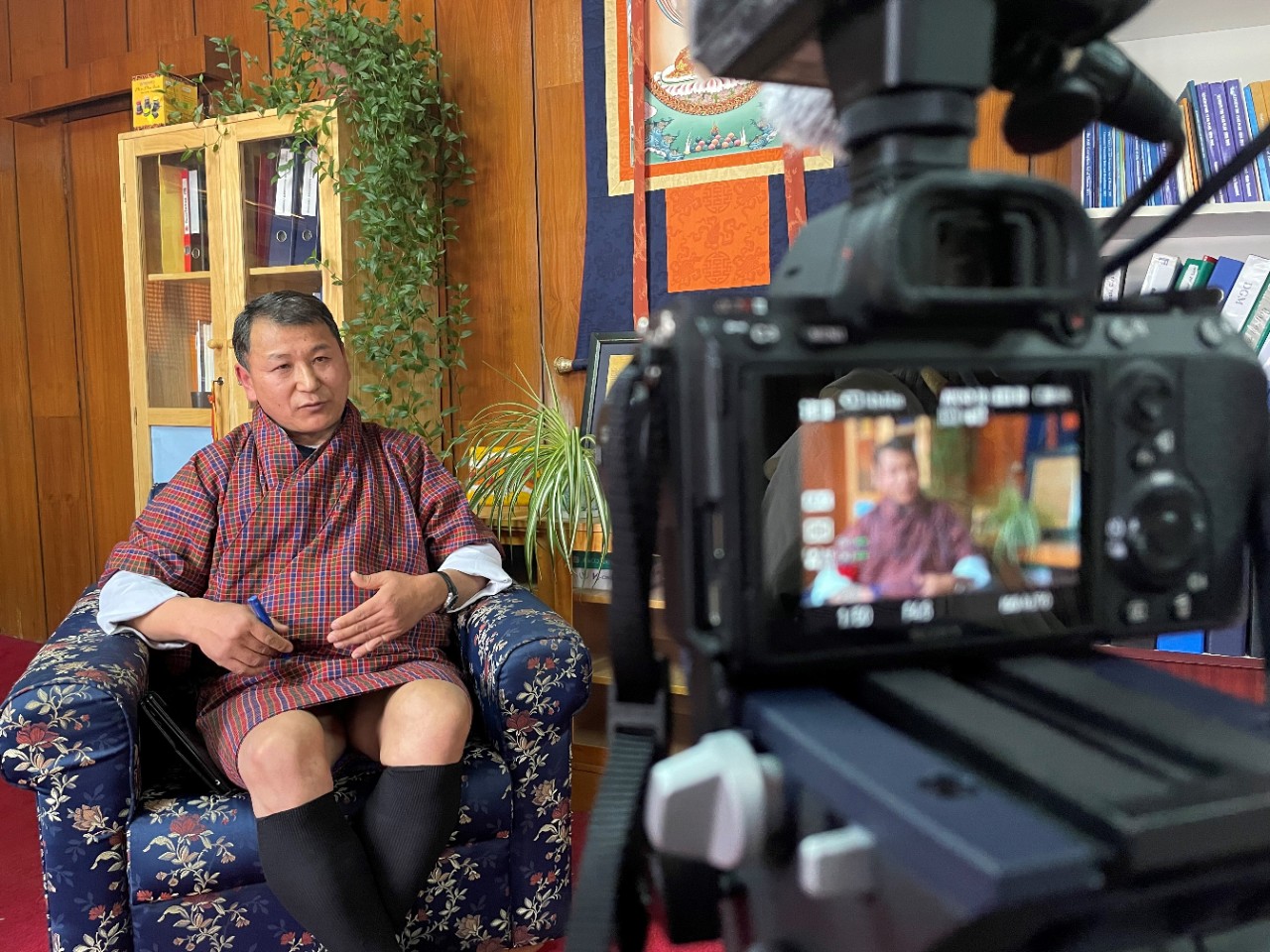--- Image caption ---
Climate issues and gender relations are closely interlinked, and research has shown men and women experience climate change differently. The National Commission for Women and Children (NCWC) and National Environment Commission (NEC) with support from UNDP is carrying out an indepth study to understand the linkages between Gender and Climate Action in Bhutan.
The first of its kind assessment on Gender and Climate Change in Bhutan; with emphasis on the Nationally Determined Contribution (NDC) priority areas Agriculture, Energy and Waste will help the country mainstream gender in its NDC process to come up with gender-responsive climate policies, institutions, mitigation and adaptation strategies, means of implementation and actions.
“Globally, research has found women are bearing the brunt of the worsening impact of climate change but in Bhutan not many understand the connection between gender and climate change and there is lack of data on it,” Kunzang Lhamu, the Director of NCWC said.
"This study, therefore, is timely and will help us understand the national context in key climate sectors and come up with gender-responsive mitigation and adaptation interventions.”
International advisor Irene Dankelman teamed up with national consultants, Manju Giri and Cheku Dorji, to carry out the study. Irene says women in poorer societies are more vulnerable to climate change impacts given their roles as primary caregivers in families and societies. It’s also because women make up a larger share of the agricultural workforce and have fewer income-earning opportunities.
However, on the other hand, women are major actors in coping and adapting to the impacts of climate change, but they are often neglected, and their voices are not heard.
“While women and men have diverse capacities and contribute differently to adaptation, mitigation and disaster risk management, women’s participation is critical to family and community survival, and makes climate action more effective,” Irene Dankelman said. “We have to find ways to engage women at all stages of climate decision-making.”
The Chief of the Climate Change Division with NEC, Tenzin Wangmo, said the study will prove resourceful as Bhutan prepares its long-term Low-Emission Climate Resilient Development Strategy (LECRDS). “It will also provide valuable inputs as Bhutan updates its NDCs,” added Tenzin Wangmo.
NDCs are at the heart of Paris Agreement and embody efforts by each country to reduce national emissions and adapt to the impacts of climate change. In 2009, Bhutan committed to remain carbon neutral. This commitment was reiterated in 2015 in Bhutan’s Intended Nationally Determined Contribution (INDC) to the Paris Agreement, which was ratified by the Parliament in 2017.
This study is supported by UNDP through the Gender Responsive NDC Implementation in Bhutan project. The NDC support project is funded by the European Union (EU), the Governments of Spain and Germany, and the NDC Partnership. It is supporting Bhutan in meeting its Paris Agreement commitments by scaling by investments in inclusive, gender-responsive climate actions.
Close to 40 representatives from the government, academia, Civil Society Organizations (CSOs) and the private sector came together for a two-day (14 -15 November) stakeholder consultation workshop in Punakha. They discussed and reviewed draft findings of the study. The final report is expected to be out early next year.

 Locations
Locations











